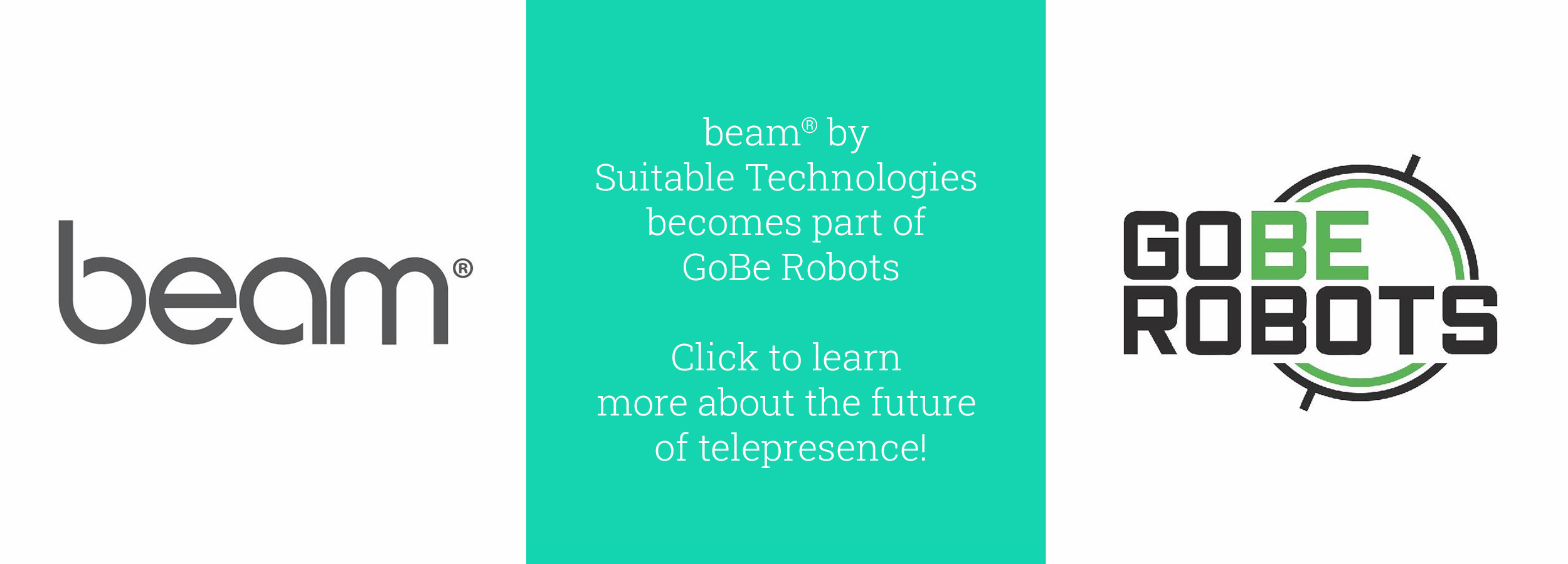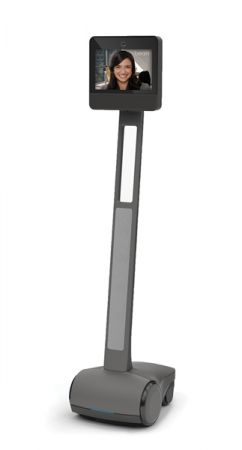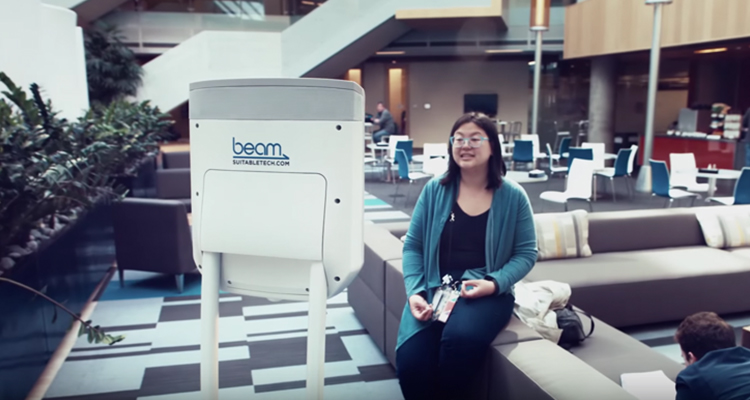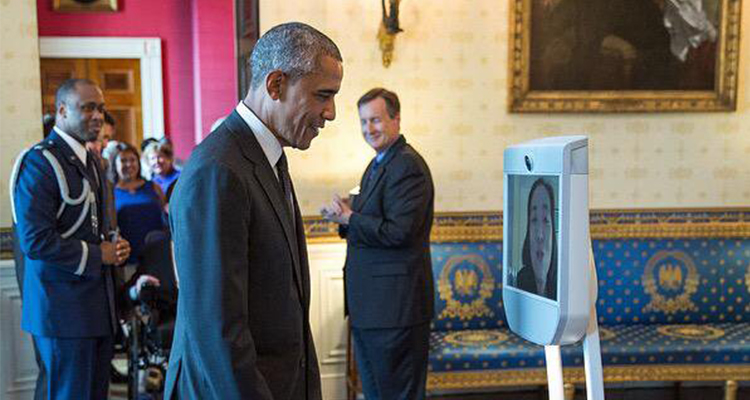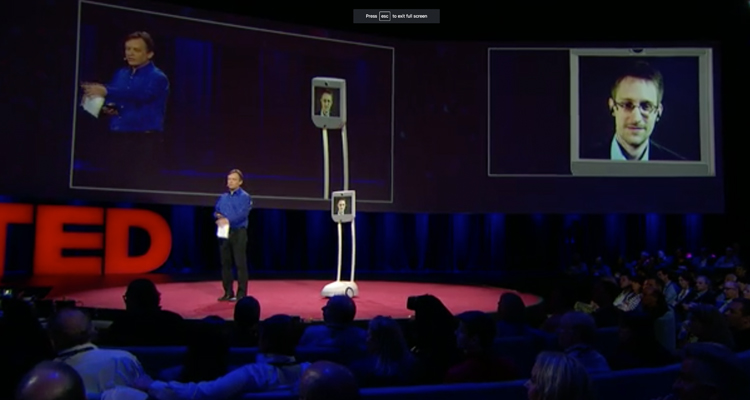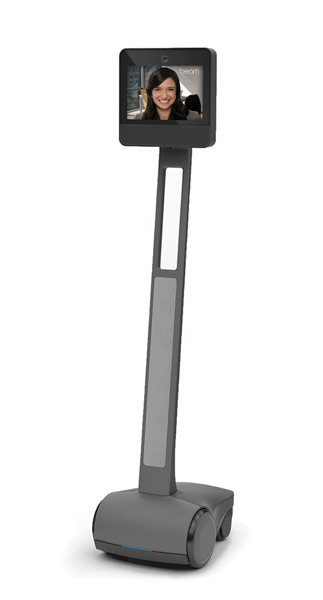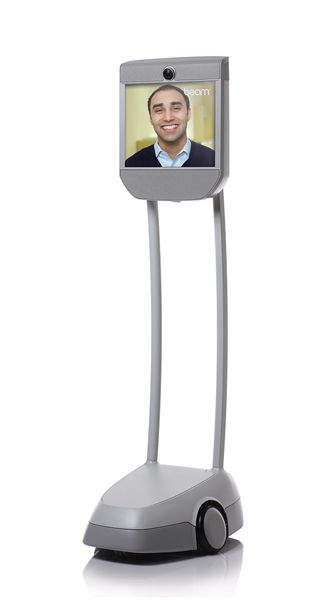**
The award-winning Museum at Your Fingertips project, sponsored by San Diego’s Balboa Park Online Collaborative (BPOC) in conjunction with the San Diego Air and Space Museum (SDASM), jettisons the need for field trip budgets, transportation, and large chunks of classroom time while still delivering the myriad benefits of a museum visit.
We recently caught up with Julia Falkowski, BPOC’s web & interactive media producer, to find out more about the project and how Beam-driven virtual tours at SDASM have helped new learning opportunities take flight.
BEAM: What is BPOC, and what’s its connection SDASM?
Julia Falkowski (JF): We’re a small nonprofit that was originally funded to provide technology support – core and digital services – to the organizations in Balboa Park, which includes 17 museums and cultural institutions.
BEAM: How did the Museum at Your Fingertips project come about? And were you familiar with Beam’s telepresence technology before you launched the project?
JF: Our CEO, Nik Honeysett, attended a conference where Suitable Technologies had a booth demonstrating the Beam technology, and he was impressed by the potential applications for what we do. BPOC performed market research to see how the Beam was used in other industries. Then we thought about the ways in which telepresence technology had not yet been tested, such as with students in a museum setting. We realized our idea played well with the Institute for Museum and Library Services Sparks! Ignition Grant for experimental museum programs, so we applied and were awarded the grant.
BEAM: What were the initial goals of the project? How did you design the project to assess if you met your objectives?
JF: We wanted to answer three key questions: What are the technological capabilities and limitations of the Beam? How useful is the device as a learning tool in classrooms? And, is the project replicable in other museums across the country?
The project served seven classrooms (over 100 students, grades three to six) from ten local Title I Schools. While BPOC tested the technological capabilities of Beam, SDASM developed the educational tour and curriculum-related content.
BEAM: What problems does Beam solve for your program that other technology doesn’t?
JF: Other museums had experimented with video chat, but the Beam seemed like a great opportunity to recreate the museum experience in a different way. There’s a big drop-off in field trip funding, especially for Title I schools. It’s both the barrier of money and also time taken out of the classroom. A full field trip takes a whole day, whereas a Beam tour is only an hour. Also, some urban schools do not have access to busses, and the only way to get to the museum is by asking parents to drive – so this helped overcome this challenge as well.
BEAM: How did the students and teachers respond to the Beam?
JF: The students took it up right away and seemed to know what to do, as if it were a videogame interface that they intuitively knew how to work. Teachers received training ahead of time in order to facilitate discussion while driving the Beam. We were impressed with that!
BEAM: What has been some of your favorite reactions to the Museum at Your Fingertips project by students?
JF: The real moment is when they log in and start driving. In the first two or three minutes, they ooh and ahh as it moves around. One student said, “I wish we could be in the museum in person,” which speaks to our wish that this will facilitate curiosity in students and spark their interest in visiting in the future, and from that positive experience, become lifelong museum lovers. It’s a big part of the point of what we’re doing here.
BEAM: Do the Beams have nicknames at this point?
JF: We thought about coming up with a specific name for SDASM’s BEAM, but since there was always a different educator on every tour, that didn’t quite work. However, students immediately wanted to personify the Beam, so we put a flight jacket on it. That worked both for the students and for other museum visitors, too – the flight jacket started some interesting conversations in the galleries and overall made it a friendlier experience.
BEAM: Which features have been the most valuable on your Beam? The visibility, mobility, audio, connectivity?
JF: Because SDASM is an interactive museum, with lots of videos and noises, the “party mode” feature has made it easier for the docent to hear, and then the students can hear better as well. Also, SDASM has many places that look like staging areas of flight decks – including ramps and rough flooring – so mobility is key to accessing every portion of the museum. The Beam’s big wheels navigate the space very well, so there are no issues moving around the space.
BEAM: What awards or special recognition has the The Museum at Your Fingertips project received?
JF: We are involved in a couple of organizations that give out awards at their annual conferences, and we were thrilled to receive a 2017 Silver Media & Technology Muse Award from the American Alliance of Museums and an Honorable Mention in the Education category for the 2017 GLAMi awards from Museums on the Web.
BEAM: Are there any plans for expansion beyond the test schools you’ve served thus far?
JF: We’re working on finding ways to expand the program to other museums in the park. SDASM is a large museum with a sizeable staff comprised of volunteers and paid employees; we’re interested in helping smaller, volunteer-driven museums and are currently applying for additional funding from other sources. Also, after seeing what we did with the Beam at SDASM, The San Diego Museum of Art has borrowed the BPOC Beam and was successful in procuring funding to purchase their own telepresence robot. Their Beam program is now in the works.
This interview has been lightly edited and condensed for clarity.
###

